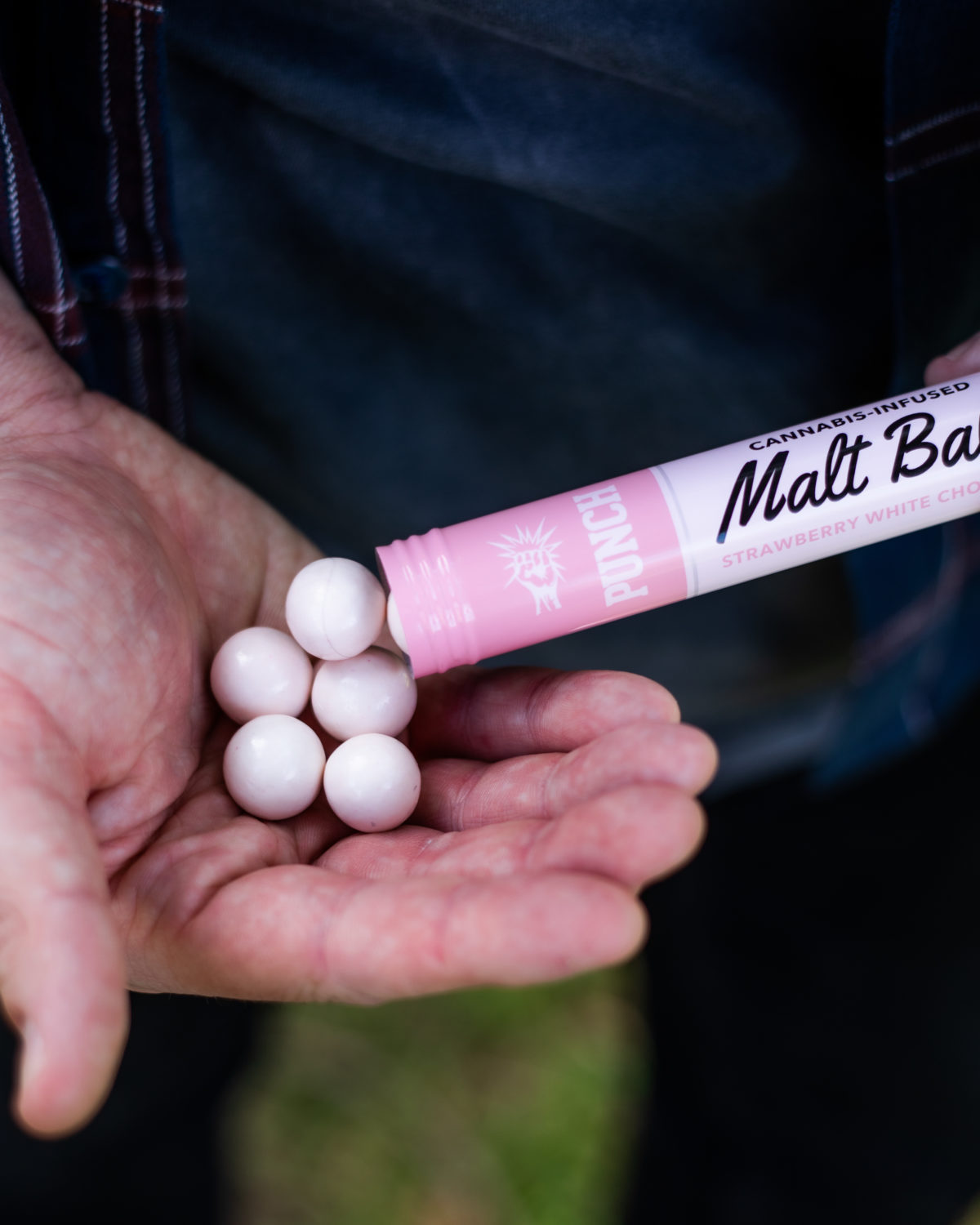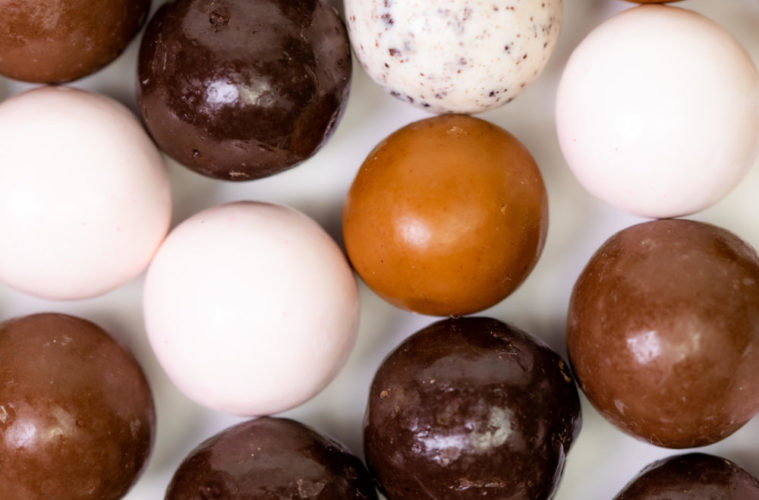We chatted with the Punch Edibles team about their challenge-filled journey to becoming one of the most reputable edible companies found on Los Angeles dispensary shelves.
Prior to “the man” putting a 100-milligram cap on edibles after the medical marketplace had previously allowed products 10 times stronger, people still shopped for value in their edibles. The idea of getting the most bang for your buck when buying a cannabis-infused brownie or gummy bear was definitely a thing.
But prior to the cap, there were a few companies that really took potency to another level. Punch Edibles had firmly positioned themselves in that group in the buildup to legalization. Punch Edibles’ COO Michael Martinez chatted with us about the ups and downs of the years since.

Photo: Chris Martinez
“We started right at the tail end of 2013, but we’re a full seven years into the market at this point, being a previous Prop. 215 operator that was then able to transfer over into the new recreational side of things,” Martinez told L.A. Weekly. “It’s been a journey for sure.”
For many years, Punch felt like a very L.A.-centric brand. Edible enthusiasts from out of town would grab a few before they left. We asked Martinez what it’s been like to have the brand’s identity be so local as it now branches out across the state more.
“You know, it’s been one of the things that’s been to our benefit,” Martinez said. “Also, there was a period of time where it was kind of to our shortfall. The city of L.A. had a crazy licensing process and we ended up getting kind of held back for almost a year when rec finally first came about. But as a company, we’ve actually really wanted to put our anchor and base points here in the Los Angeles area.”
Martinez feels like from a long-term perspective, people are really going to care about not only their products coming from California, but being competitive in the industry as a whole in bigger cities like Los Angeles. Being a top chocolate producer in L.A. rather than a mystery town that decided to be pro-weed has a better ring to it.
The weed chocolate industry itself has been a bloodbath in recent years. I wouldn’t be surprised if the number of weed chocolate companies that came and went over the last decade approached triple digits. But the fierceness of the competition only makes what the survivors pulled off that much more impressive.
We asked Martinez how cool it was to be one of the survivors.
“I think one way to describe it is lucky,” Martinez replied. “Like you mentioned, it’s extremely competitive and I feel like my partners and I are just blessed that we built such a strong brand in the earliest stages of [Prop.] 215 and we’re fortunate enough to be a part of the licensing process when recreational came about.”
Martinez said while they were able to carry that brand into the recreational market it wasn’t like they were just making money hand over fist at first just because they were able to make the transition.
“There’s just now a mountain of competition that is coming into the place and into the field. We kind of quickly pivoted ourselves a little bit into not just being focused on being a chocolate company or an edible company as much as we have built a brand around,” Martinez said. “Our success from a financial standpoint, unfortunately, really couldn’t stand on just those legs.”
The biggest success story yet from the new-look lineup is the rosin.
“Obviously with the rosin that we’ve put out that’s been a big, big, big pull for us,” Martinez said. “We dabbled a little bit into some dry flower. We started doing pre-rolls here recently. And then we’re also going to be releasing some solventless vapes coming here in the near future as well. So really just trying to diversify ourselves just a little bit beyond just the edibles and chocolates.”
In the end though, Punch, be it extracts or edibles, has essentially had to build out the company twice. Once before legalization, where they lived up to their namesake, and again when the entire marketplace was capped at 100 milligrams.
“It was tough, man. I mean, I’ll be honest with you, like, when we were in the 215 days, I think we were in well over 350 shops,” Martinez said. “And when we came into the recreational market, we were kind of capped in this 100-milligram category. It pretty much wiped our entire business off the face of the earth. We pretty much started at ground zero. And it was a pretty daunting uphill battle for us to regain a lot of our customer base.”
Despite the journey’s challenges and a few gray hairs, Martinez wouldn’t change a thing.
“I think the biggest thing we really want to let everybody know is that we are a legacy brand and we plan to be here for the long future and we’re excited,” Martinez said. “We’re excited to be a part of this industry just as much as everybody else is. We’re just normal guys, though. Out here just doing our thing and just feel blessed to be a part of it.”
Advertising disclosure: We may receive compensation for some of the links in our stories. Thank you for supporting LA Weekly and our advertisers.

